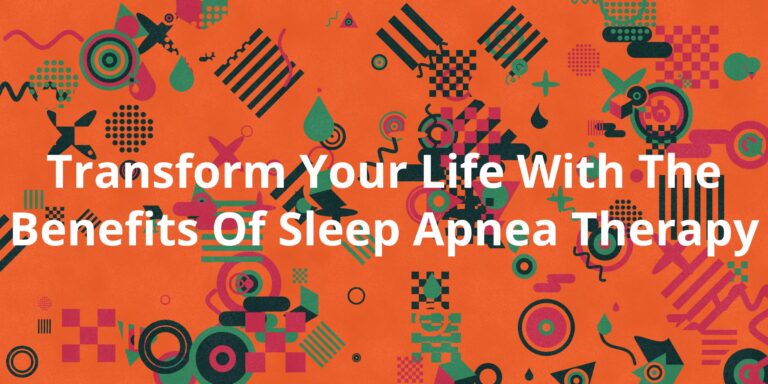Sleep apnea is a sleep disorder that affects millions of people worldwide. It is characterized by interrupted breathing during sleep, which can lead to restless nights and decreased daytime energy levels. However, with the right treatment, sleep apnea can be managed effectively, leading to improved overall health and well-being.
In this article, we will explore the impact of sleep apnea on our lives and how it can be transformed through various treatments available. We will also delve into the importance of restful sleep and its benefits for physical and mental health.
What is Sleep Apnea?
Sleep apnea occurs when the airways become obstructed during sleep, causing breathing to stop temporarily. This can lead to several symptoms such as loud snoring, gasping for breath, daytime drowsiness, and difficulty concentrating. There are three main types of sleep apnea: obstructive sleep apnea, central sleep apnea, and mixed sleep apnea.
Obstructive sleep apnea is the most common type and occurs when the tongue, soft tissues in the throat, or other obstructions block the airway during sleep. Central sleep apnea, on the other hand, occurs when the brain fails to send signals to the muscles controlling breathing during sleep. Mixed sleep apnea is a combination of both obstructive and central sleep apnea.
Impact of Sleep Apnea on Our Lives
Sleep apnea can have several negative effects on our lives if left untreated. These include:
1. Decreased Daytime Energy Levels: Lack of restful sleep due to sleep apnea can lead to decreased daytime energy levels, making it difficult to perform daily activities such as work or exercise.
2. Increased Risk of Chronic Health Conditions: Sleep apnea has been linked to an increased risk of chronic health conditions such as heart disease, stroke, diabetes, and obesity.
3. Impaired Cognitive Functioning: Lack of restful sleep due to sleep apnea can impair cognitive functioning such as memory, attention, and decision-making abilities.
4. Decreased Quality of Life: Sleep apnea can negatively impact our overall quality of life by causing irritability, mood swings, and decreased satisfaction with life.
Treatment Options for Sleep Apnea
There are several treatment options available for sleep apnea, including:
1. Continuous Positive Airway Pressure (CPAP) Therapy: CPAP therapy involves the use of a device that delivers pressurized air through a mask to keep the airways open during sleep. This is the most common and effective treatment for sleep apnea.
2. Lifestyle Changes: Lifestyle changes such as weight loss, positional therapy (sleeping on your side), and avoiding alcohol and caffeine before bedtime can also help manage sleep apnea.
3. Surgery: In some cases, surgery may be necessary to remove excess tissue or enlarge the airways.
4. Alternative Treatments: Alternative treatments such as acupuncture, herbal remedies, and hypnosis have also been found effective in managing sleep apnea.
The Power of Restful Sleep
Restful sleep is essential for our physical and mental health. It allows the body to repair and rejuvenate itself, while also improving cognitive functioning and mood. Some of the benefits of restful sleep include:
1. Improved Physical Health: Restful sleep can help reduce the risk of chronic health conditions such as heart disease, stroke, diabetes, and obesity.
2. Enhanced Cognitive Functioning: Restful sleep can improve memory, attention, and decision-making abilities, leading to better overall cognitive functioning.
3. Increased Mood and Satisfaction with Life: Adequate sleep can improve mood and increase satisfaction with life, leading to a better quality of life.
4. Weight Management: Sleep apnea has been linked to weight gain, and restful sleep can help regulate weight by reducing hormones that stimulate appetite and increasing those that suppress it.
Conclusion
Sleep apnea is a common sleep disorder that can have several negative effects on our lives if left untreated. However, with the right treatment options available, sleep apnea can be effectively managed, leading to improved overall health and well-being. It is essential to prioritize restful sleep as it has numerous benefits for physical and mental health. By understanding the impact of sleep apnea and its treatment options, individuals can transform their lives and experience better quality of life.



